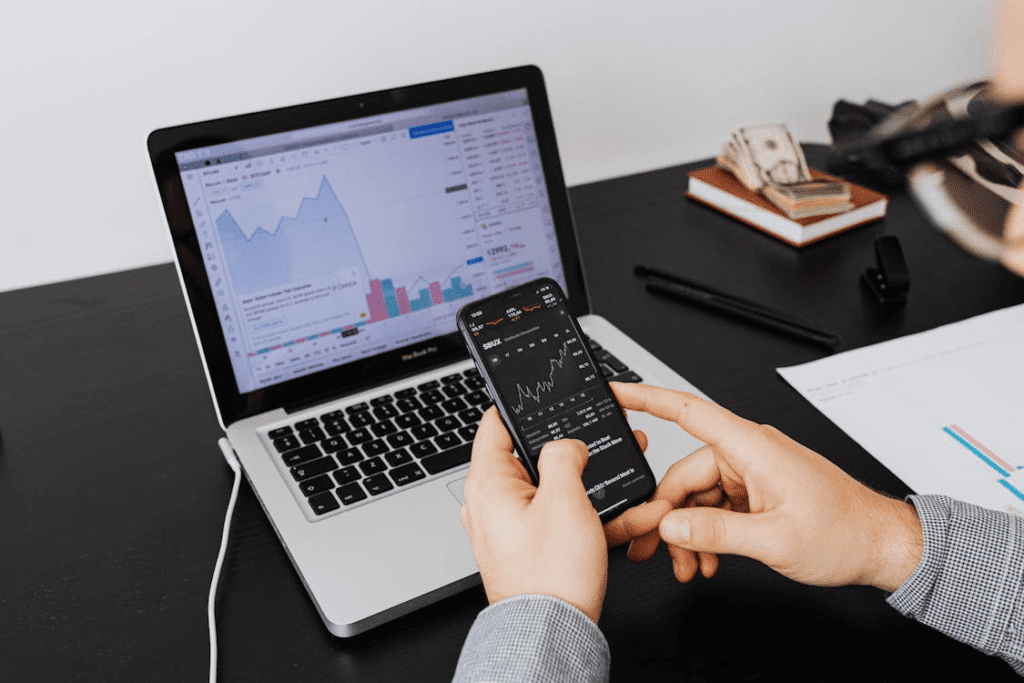Online trading trends shape how global trade finance functions today. From mobile-first solutions to ESG-focused investments, these shifts are creating ripple effects across financial ecosystems.
Read also: How Generative AI Can Be a Game Changer in Online Trading?
Let’s explore how modern trading practices influence cross-border funding and reshape international financial landscapes.
The Impact of Fractional Trading on Trade Finance
Fractional tradingwhich lets investors buy small portions of high-value assets, is changing how trade finance operates globally. By lowering entry barriers, it allows a broader pool of participants to engage in markets previously dominated by institutions or wealthy individuals.
This trend encourages capital to flow from unconventional sources into global trade ventures. For example, smaller investors can now contribute indirectly to funding international businesses or large-scale projects through diversified portfolios.
The wider distribution of investment capital impacts liquidity within trade finance systems and introduces fresh dynamics into risk-sharing practices.
As more people participate, financial ecosystems grow increasingly interconnected and resilient against economic disruptions worldwide.
How Algorithmic Trading Reshapes Risk Assessment
Algorithmic trading relies on advanced software to execute trades based on predefined criteria. Its influence extends beyond individual portfolios, reaching global trade finance practices.
These algorithms analyze massive amounts of market data in real time, offering unparalleled insights into risks and trends.
For trade financiers, this means improved risk assessment tools driven by the same technology.
Predictive models help identify potential disruptions or opportunities within supply chains and international markets faster than manual processes could achieve.
This accuracy strengthens decision-making for businesses relying on global financing systems. As a result, both lenders and borrowers benefit from more stable financial structures backed by data-driven strategies that anticipate volatility rather than react to it blindly.
Mobile-First Trading Solutions Driving Regional Finance Connectivity
The rise of mobile-first trading platforms is bridging gaps in regional finance. These solutions allow investors from different corners of the world to engage with global markets directly, often with just a smartphone.
This accessibility encourages participation across diverse demographics, especially in emerging economies.
Platforms such as AxiTrader Limited play a role by providing intuitive tools tailored for mobile users, making real-time trading seamless (even for beginners). It’s no longer necessary to rely on traditional setups when you can monitor and act on trades instantly via your phone.
This shift promotes greater connectivity within trade finance systems while enabling smoother cross-border capital flows and fostering inclusivity across financial landscapes globally.
Social Trading’s Role in Global Market Integration
Social trading connects investors by enabling them to share strategies and replicate trades. This collaborative approach has broader implications for global trade finance, promoting transparency and democratizing access to financial opportunities.
By learning from seasoned traders, individuals gain confidence to participate in markets they might otherwise avoid.
These collective behaviors amplify liquidity across diverse regions, fostering integration between local and international economies.
As social trading platforms bridge knowledge gaps, more participants enter global investment streams, diversifying capital flows into trade financing sectors.
The result is a ripple effect—financial ecosystems become more inclusive while simultaneously supporting cross-border economic activity on a larger scale than traditional methods could achieve alone.
Real-Time Data Accessibility and Its Financial Ripple Effect
The availability of real-time market data transforms global trade finance by improving speed and precision in decision-making. Investors, equipped with up-to-the-second insights, can react instantly to changes that impact trade flows or financial markets.
This immediacy enhances transparency for stakeholders managing cross-border transactions. Trade financiers gain the ability to assess credit risks faster and identify new funding opportunities without delays caused by outdated information systems.
As technology improves access to this data globally, smaller players benefit as much as major institutions do.
The result is a more balanced financial ecosystem where decisions are based on current realities rather than delayed projections, creating steadier trade finance environments worldwide.
Cryptocurrency Adoption and Its Influence on Cross-Border Transactions
Cryptocurrencies are streamlining cross-border trade by offering faster, more cost-effective transaction methods. Unlike traditional banking systems, crypto eliminates intermediaries, reducing delays and fees tied to international payments.
For global trade finance, this means greater efficiency in funding supply chains or settling invoices across borders.
Small businesses benefit most from these innovations since they can bypass conventional hurdles like currency conversion costs or inaccessible banking services.
As adoption grows, cryptocurrencies also introduce new considerations for risk management within financing frameworks.
Trade financiers are exploring how blockchain technology—the backbone of crypto—can enhance transparency and security in global transactions while enabling smoother capital flows for businesses operating internationally.
The Rise of ESG Investments Through Online Platforms
Lastly, Environmental, Social, and Governance (ESG) investments are gaining traction via online trading platforms. These platforms make it easier for investors to support businesses aligned with sustainable and ethical practices.
This trend influences global trade finance by encouraging capital allocation toward green initiatives or socially responsible projects.
Companies prioritizing ESG compliance often gain better access to funding streams as demand grows for transparency in business operations.
By integrating ESG-focused portfolios, investors drive shifts in supply chain priorities worldwide.
Trade financiers increasingly assess sustainability metrics when allocating resources, reinforcing long-term value creation over short-term gains while fostering environmentally conscious global economic systems built on shared principles of accountability.
Conclusion
Online trading trends continue to redefine global trade finance, enhancing accessibility, efficiency, and inclusivity.
As these innovations evolve, they pave the way for stronger connections between markets, driving progress across international financial systems with unprecedented opportunities.

